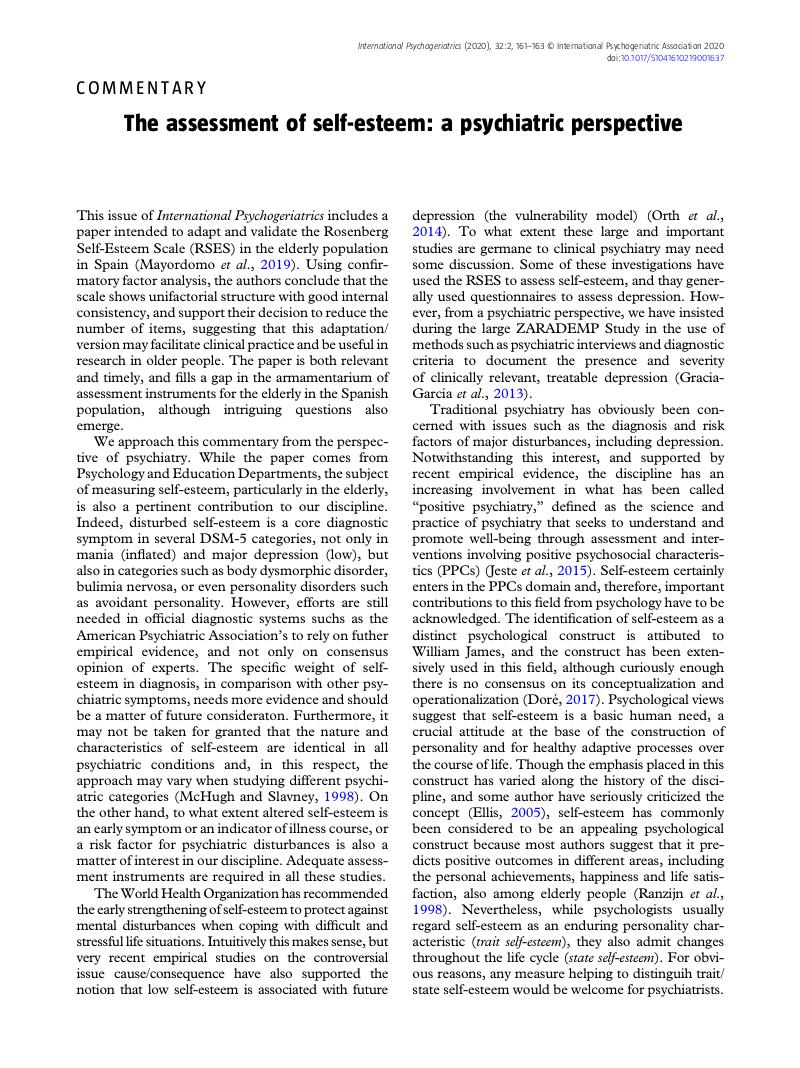Crossref Citations
This article has been cited by the following publications. This list is generated based on data provided by Crossref.
Matud, M. Pilar
Bethencourt, Juan Manuel
Ibáñez, Ignacio
and
Fortes, Demelza
2020.
Gender and psychological well-being in older adults.
International Psychogeriatrics,
Vol. 32,
Issue. 11,
p.
1293.



